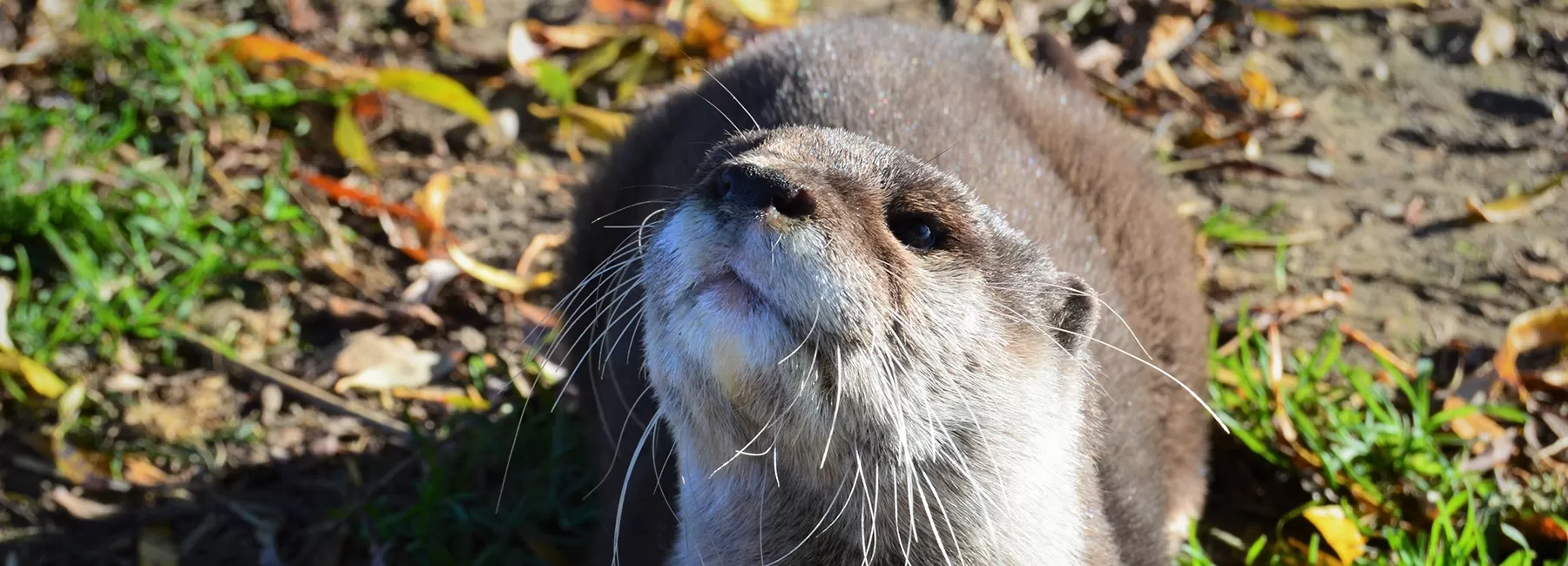This is a University of Greenwich programme.
The FdSc in Zoo Management is aimed at students wishing to take a vocational programme to provide them with the skills to work in the zoo industry. The programme is aimed to equip students with a range of skills needed by the industry such as aquatic species management, native species management, project management, horticultural practices as well as direct practical animal management skills on a wide range of species. The range of modules ensures that students are able to apply for a range of job roles after completion. This includes private collections, zoos, wildlife parks, education establishments and charities. The Animal Management Unit has now developed a range of diverse 170 species and 1000 animals which fit the larger zoo industry. More complex zoo related species have been added to the collection such as mongooses, otters, rhea, cusimanse, pancake tortoises, marmosets and cuscus. Investment in Higher Education has continued with a specific dissertation project room in the AMU as well as an HE research room now available for practical investigations. Other key developments which will be used within the course is the membership and use of Zoo Information Management System (ZIMS) which is a software gateway which facilitates international collaboration in the collection and sharing of knowledge on animals and their environments for animal collections. Students also use PMx software to investigate studbook use and therefore will be engaged directly with industry appropriate technology. The programme is delivered by a team of dedicated and highly experience teaching staff who have a wide range of expertise within the animal collection field. The programme is primarily delivered at Hadlow College, in a multi-million pound, state-of-the-art Animal Management Centre, as well as the surrounding estate of the college. The programme also provides numerous opportunities for external visits to zoological collections, animal-related businesses, and local wildlife reserves. Furthermore, students will have the opportunity to gain experience on an international study tour as part of their programme, which currently runs to Jersey and South Africa. The development of knowledge and understanding is covered in the full range of courses at HE levels 4 and 5, and enhanced by group work, discussion and presentations from industry. The application of this knowledge to real-life situations in animal management is covered particularly in courses such as the Animal Husbandry linked modules and work based learning elements. Each course is assessed by a combination of coursework, practical assessments and end of course examinations and assessments. The nature of the coursework is appropriate to the subject area and learning outcomes outlined in the course specification forms. Coursework, individual and group oral and PowerPoint presentations, research reports, case studies and assignments, and closed book examinations will all be used in combination with industry relevant context specific assessments utilising technologies where appropriate. Use of the VLE, new e-portfolios, websites is encouraged to embed technology into the programme for assessment. Students will be involved in individual seminars demonstrating animal management techniques and principles, biological understanding, and research methods, assignments involving industry specifically designed to develop problem solving skills, academic tutorials designed to develop understanding of concepts and paradigms, and (particularly at HE level 5) preparatory exercises for progression onto HE level 6. Each course will involve discussion of key issues, practice in applying concepts both orally and in writing, analysis and interpretation of material, and individual feedback sessions for learners on work produced.
Course options
Code
T3H142PLevel
Level 4Campus
HadlowDuration
2 YearsStarting
15/09/2025Ending
18/06/2027-
What qualification will I gain?
-
Entry Requirements
64 UCAS points are made up from A Levels, preferably one in a science-based subject, or a relevant level 3 vocational qualification. All applicants should have GCSE Grade C or above in English, maths and science and have spent two years studying at Level 3. Applications from mature students, without the standard entry requirements, who are working in the industry are considered on a case by case basis.
-
What progression options will I have?
Students have the option of completing a top-up degree on the BSc (Hons) Animal Management degree programme at Hadlow College. Students may move into practical job roles on completion of the course such as zoo keeping, education officers, technical instructors, record keeping roles, zoo horticultural roles or aquatics based positions.

